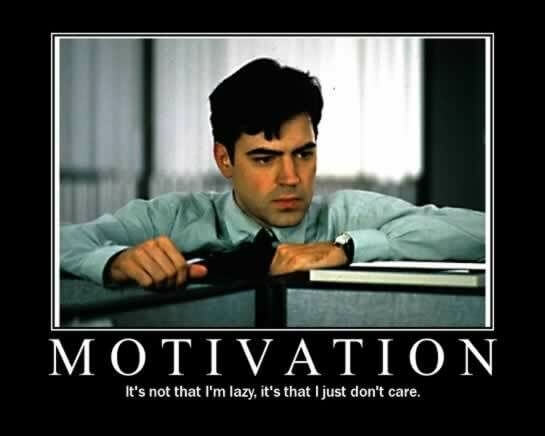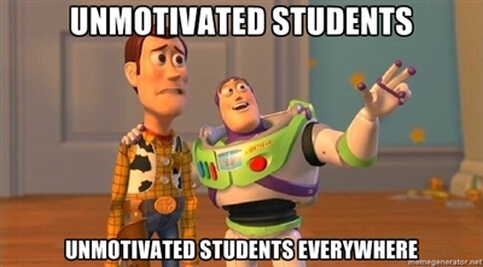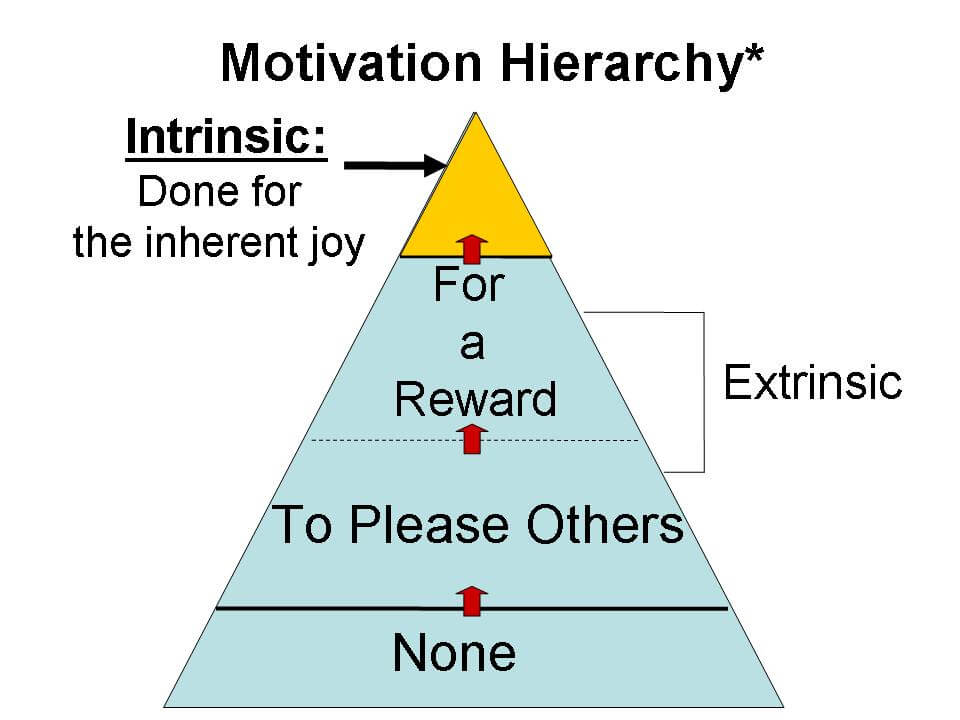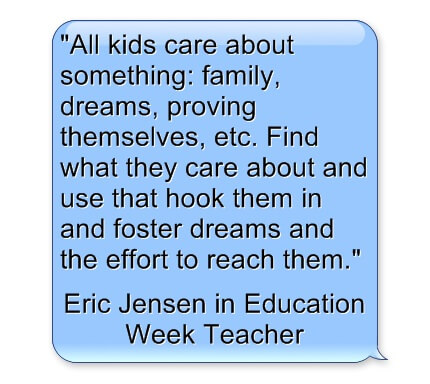AS TEACHERS it is imperative that we motivate our students before every lesson. We can think of so many ways to get them hooked into the lesson. There can be games. There can be rewards or prizes for good performance and behavior, or negative motivation such as punishments, such as facing-the-wall and deductions from scores.
However, as the kids age, these motivations are no longer working. They develop their own set of motivating factors. Usually, because of the many distractions — like social media (Not that I am totally regarding Facebook and Twitter as the bane of education; there are even ways that these sites can be of help. But that that is for another blog post) — students become unmotivated when it comes to their studies.
For me, the very sad thing that can happen to my students is when they lose the motivation to excel in their studies. As a teacher here at AlSci, we are always encouraging our students to always be excellent in their academics, given that this school was created to cater to intellectually gifted students and train them to one day become leaders in the field of science, mathematics, and research.
The very challenge for teachers like me, nowadays, is how to fuel our students’ desire to succeed in their academics. But I think that the students should not rely on extrinsic motivation. And I guess that teachers should start refraining from giving rewards and punishment, because this further develops the students’ dependence on external factors for doing their tasks and responsibilities. What we should focus on, instead, is how to help the students’ find their intrinsic motivation.
When a student is intrinsically motivated, he will show genuine behavior. When they are after of prizes or when they fear punishment, they will modify their behavior for the sake of the winning the prize or avoiding punishment. And I don’t think it is good. I prefer that students perform their duties because they want to and that it is the right thing to do.
So, what do I tell my students so that they can find their intrinsic motivation?
1. Acknowledge your giftedness
I believe that all successful individuals became motivated to become successful because they were able to acknowledge that they are gifted. It is always important to feel good about yourself.
Begin with this simple task:
- Make a list of what makes you special. How many can you list down?
- What do you have that will enable to succeed? Do you have material things? Do have innate abilities? Do you have friends who can help you? Do you have a good character?
An article I found around the web tells us about ways to acknowledge your giftedness. One, look at the people around you whom you think are gifted and think of the characteristics that you share with them. What do you have in common? Two, ask your family and friends about what they think about you. Seek their input and validation.
Capitalize on your strengths and opportunities. Use them. Develop them.
2. Set your own goal
For my senior students, I usually ask them to write their personal goals in the first pages of their notebook. They would also write the strategies that they think will help them attain their goals.
I would ask them to close their eyes and think of the future. I would ask them to visualize what they would be wearing 10 years from now, where they would be, what they would be doing, and so on.
I would then ask them to write a goal. And from that goal, they should write objective. The objectives must be specific and realistic and their strategies, doable. This way, they can better be clarified about what they should do in order to become the kind of person they saw themselves to be in the future.
It is like answering these questions: What do you really want to become? How will attain that goal? Are the things you are doing right now will lead you to becoming the person you want to be?
We all have our own definitions of success. You should be the one to define their own success and you should be the one who will set your own personal goals.
3. Believe that you can always be better
We are all unique. We have our own abilities and talents. There are students, however, who do not acknowledge this. Maybe that is because they compare themselves with others all the time. In a classroom where there are four or five extremely confident and talented students, the rest would complacently remain in the side lines, allowing those four or five students to always take the limelight.
That would be acceptable if you will find out that their personalities are really of the type who are just silent but still catches the lesson and get good scores in quizzes and examinations. But that is not always the case. These silent type students also get low scores, don’t submit projects, don’t participate even in activities where they are not required to talk. Something must be wrong.

They are not exerting any effort because they have stopped believing that they can be better. They’d like to settle with their current status not because they are lazy but because they have allowed their class standing to define who they are. If you are in the 24th place, does that mean that there are 23 students who are better than you? Don’t you think you can be in the top five if you would just work your way to it?
The most common excuse of students who don’t perform well in school is this: “Well, I am not as bright as them,” or “Ganito na talaga ako, eh.” (I have always been and will always be like this.)
Now, let’s negate that. You might not be as bright as them but you are gifted just like them. You just didn’t see that. You are in the same classroom. You heard what they heard. You saw what they saw. You differ in your interpretation. You differ in your imagination. Or did you imagine as you receive new information? Did you link the new information to your experiences or previous knowledge? Did you try to challenge the information that you have received or simply accepted it? My point is this: you were exposed to the same teaching but your responses are different.
Another excuse is this: “Well, if they are good in academics, I am good in some other things.”
While there is wisdom in that statement, considering that we have our own unique abilities, my take on that is this: Why were you good in that particular thing? Because you focused your attention on it. You exerted effort to be good at it. Right? If so, if you will focus your attention in your schooling, exert the same you effort you as you did, you can be good at it, too, right? If you can be good in playing computer games, you are also capable of improving your academic performance. That is if, you will love it they way you love your favorite computer game.
Remember that life is a journey of endless learning. You will never be too old to learn.
If you only believe that you can do what others have done — better yet, if you believe that you can surpass what they have done — you are halfway there. Believing is half of the journey.
It is easy to spot intrinsically motivated students. They sit up straight. They participate actively in class. They do not need prodding to perform their tasks. You can see how genuinely happy they are in doing their tasks, regardless of the personal challenges that they are facing.
When I see most of my students becoming more and more intrinsically motivated, I’d be the happiest teacher ever.









